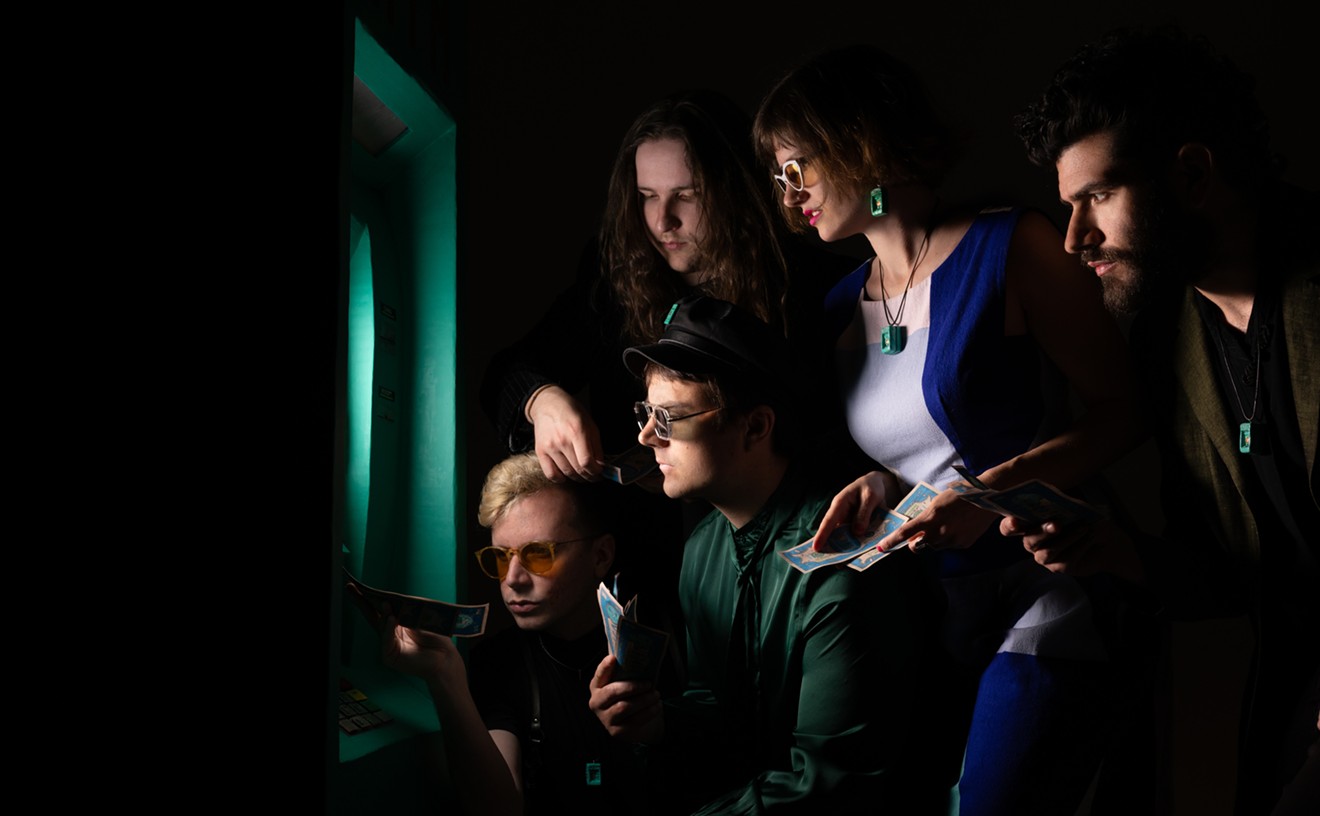Bristol, England, has been bestowed with nicknames like "Slackersville, UK." It's a graveyard for ambition, we're told, a place where residents take awhile to climb out of bed in the morning. Some say the locals operate on "spliff time."
This provincial torpor was often cited as an indirect inspiration for Bristol's regrettably named genre of trip-hop. Perhaps it's also why the scene's biggest act (over here in the States, at least), Portishead, was on hiatus for nearly a decade. Recently the bandmates announced they are finally following up their 1997 self-titled second album — a new LP is due in April. What's more, last month Portishead played its first full live performances in 10 years, mixing old material with new at the All Tomorrow's Parties "Nightmare Before Christmas" event in Minehead, England.
Very ironic, I suppose, since Portishead's biggest hit in America was all winter with no Christmas. The nocturnally tense "Sour Times" single climbed to number five on the modern rock charts, and enthused the grunge-smitten with its woe-is-me chorus of "Nobody loves me/It's true." But while Portishead exuded the same gravitas as grunge contemporaries, their music was never antagonistic. Vocalist Beth Gibbons's confessionals are pure melancholia, hinting at a crippling inertness.
And that's what trip-hop was all about: being inert. At least physically. Many missed the point, of course. The genre-blurring Massive Attack, which released trip-hop's landmark album in 1991, Blue Lines, was frequently touted as a dance act. And founding member Grant "Daddy G" Marshall even said, "I think we make music that we want to listen to. It's aimed at the head rather than the feet." Proof is in the blissed-out soul of "Blue Lines" and the head-lolling dub of "Safe from Harm."
Tricky, the third of Bristol's trip-hop triumvirate (and onetime member of Massive Attack), also aimed at the head — only it was his own. His 1995 opus, Maxinquaye, turned self-neurosis into asthmatic wheezing ("Strugglin'") and charcoaled, down-tempo beats ("Overcome"). Tricky's seeming drug-casualty paranoia told us the hedonism of Madchester had wrought disastrous results.
More than a decade on, one of trip-hop's greatest legacies remains unheralded: Its continuation of a sexual revolution started by Bristol-based Sarah Records. With skillful artifice, Bristol artists brought the female voice and form — from Gibbons to Shara Nelson to Martina Topley-Bird — to a genre (hip-hop) shot with machismo. Whoever said Bristol folks lacked ambition?










